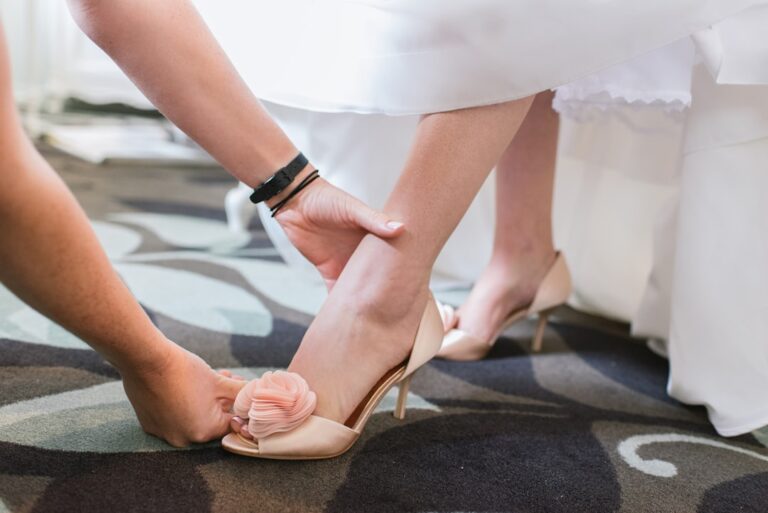Have you ever found yourself haunted by memories of a person who treated you poorly, while barely thinking about someone who cared deeply for you? If so, you’re not alone. This seemingly counterintuitive dynamic—where we let go of those who were good to us and fixate on those who hurt us—is a common psychological phenomenon that touches on deeper emotional processes, attachment patterns, and even aspects of self-worth.
Understanding the Puzzle: Why We Obsess Over the Wrong People
Many of us have experienced it: the gnawing preoccupation with someone who didn’t value us, even as we forget or overlook those friends or partners who treated us with genuine care. It can be deeply frustrating, especially when well-meaning loved ones tell us to “move on” or “just focus on those who care about you.” But our brains and emotions often have their own logic.
The Power of Unresolved Emotional Needs
One central reason we cling to those who were bad to us is the powerful pull of unresolved emotional needs. When someone rejects us, mistreats us, or withdraws abruptly, it can feel like a wound that keeps reopening. Our minds desperately want closure, understanding, or even a different outcome.
Rather than accepting the situation, we may ruminate on what went wrong, what we could have done differently, or whether we could somehow win back their approval. This creates a feedback loop of obsession: the more we don’t get what we need from the person, the more we crave it—the classic “wanting what we can’t have.”
The Brain’s Reward Systems Are at Play
Neuroscience offers another lens. Research shows that unpredictability can trigger heightened dopamine release in our brains. When someone’s attention is inconsistent—sometimes warm, sometimes cold, sometimes present, sometimes absent—it creates a “variable reward schedule,” similar to how slot machines entice gamblers. The possibility of a reward, however rare, keeps us hooked.
- Intermittent reinforcement drives us to keep seeking validation from those who withheld it, making it even harder to let go.
- Our brains become conditioned to associate their sporadic attention with intense feelings, fueling obsession.
Attachment Styles: The Roots of Our Relationships
Our early life experiences often set the stage for how we approach relationships as adults. Attachment theory, developed by psychologist John Bowlby, suggests that our patterns of attachment are shaped in childhood and influence whom we are drawn to and how we act in relationships.
People with anxious attachment styles, for example, may be especially prone to obsessing over those who are unpredictable or dismissive, seeing their affection as something to be earned. Conversely, secure or reliable connections may feel “boring” or less emotionally compelling, simply because they don’t trigger the emotional highs and lows that come with insecure attachments.
Why We Let Go of People Who Were Good to Us
This brings us to the other side of the paradox: why do we so easily let go of those who were consistently good to us?
Emotional Safety Feels Unremarkable
Humans are wired to notice contrast and novelty. When someone provides consistent support, love, and positivity, it can almost fade into the background noise of our lives. Emotional safety, while healthy, lacks the drama and unpredictability that the brain sometimes interprets as passionate or exciting.
- Stable relationships may not activate our stress responses, so their impact feels gentle or even forgettable.
- We may take the warmth of good people for granted, assuming it’s the default, and therefore not appreciating it as much as we should.
Self-Esteem and Self-Sabotage
Another factor is self-esteem. If we carry unconscious beliefs that we don’t deserve kindness or genuine affection, we might subconsciously devalue those who offer it. This can manifest as feeling bored, restless, or even skeptical of kind people’s motives. We may push them away or simply let them fade from our lives, while remaining fixated on the people who treat us inconsistently.
Comparison, Cultural Narratives, and Media Influence
Popular culture often glamorizes turbulent relationships, reinforcing the idea that “love” is supposed to feel urgent, uncertain, or even painful. Movies, songs, and social media paint a picture of longing and drama as evidence of depth and sincerity. As a result, relationships rooted in mutual respect and warmth might feel underwhelming by comparison.
The Human Tendency Toward Negative Bias
Our brains have a well-documented tendency to focus more on negative experiences than positive ones. This is known as the negativity bias. Evolutionarily, being alert to threats or unpleasant outcomes was more crucial to survival than remembering positive events. In relationships, this means we may fixate on people who disappointed or hurt us, replaying negative interactions in our minds far more than we savor moments of kindness and acceptance.
Why This Hurts Us—And How to Break the Cycle
Obsessing over those who were bad to us can perpetuate cycles of low self-worth, loneliness, and emotional pain. Meanwhile, neglecting or discarding those who offered us care means missing out on the essential healing and growth that comes from healthy connections. The good news? Awareness is the first step in changing these patterns.
Tips to Shift Focus and Heal
- Reflect on Your Emotional PatternsTake time to journal or talk with a therapist about why certain relationships stick in your mind. Are you yearning for closure, validation, or answers? Naming your emotional needs can help you process and move forward.
- Challenge Self-Sabotaging ThoughtsIf you notice yourself feeling bored or skeptical about good people, ask yourself where these beliefs come from. Is it discomfort with emotional safety, or a deeper sense of unworthiness?
- Practice Mindful GratitudeDeliberately remember and celebrate the people who were good to you. Make a list of qualities you appreciated, or reach out to express your thanks. Mindful focus on positivity can gently rewire your brain’s priorities.
- Limit RuminationWhen you catch yourself obsessing over someone who hurt you, gently redirect your attention. Practice self-soothing strategies like meditation, movement, or creative outlets to disrupt the rumination loop.
- Work with a ProfessionalMany entrenched patterns stem from old wounds. Therapy can help you explore attachment styles, heal self-worth, and change how you approach relationships in the future.
Building Healthier Attachment Patterns
The path to healthier relationships often requires unlearning what once felt “normal.” By surrounding ourselves with people who treat us with kindness and respect, and by learning to value emotional safety, we can change both our choices and our emotional priorities.
Steps Toward Healthier Connections
- Notice How You Feel With Different PeopleStart to notice which relationships make you feel calm, seen, and safe. Make a conscious decision to invest time and energy in these.
- Set Boundaries With Those Who Drain YouIt’s normal to want to fix or win over difficult people, but protecting your energy is an act of self-respect. Practice saying no or limiting contact where necessary.
- Cultivate Self-CompassionHealing means not only finding better relationships, but also treating yourself with the tenderness you seek from others.
Why This Pattern Is So Common—And So Hard to Break
Evolution, cultural stories, personal history, and our emotional wiring all play a role in keeping us stuck on the people who didn’t treat us well. Unraveling this pattern is challenging, but absolutely possible. The journey begins by seeing the pattern for what it is—a common human response, not a personal failing—and moving forward with understanding and empathy toward yourself.
Final Thoughts: Moving From Obsession to Appreciation
Letting go of those who hurt us and cherishing those who care may sound simple in theory, but it asks us to change deeply-rooted neural pathways and emotional habits. It takes time, patience, and self-compassion. Remember, while your brain may naturally fixate on the dramatic or hurtful, you have the power to shape new stories for yourself—stories where kindness, respect, and genuine connection are not only noticed, but deeply valued.
If you find yourself missing someone who treated you poorly or overlooking someone who was good to you, know that you’re not alone. With awareness and intention, you can change these patterns, embrace healthier relationships, and create a more fulfilling emotional life.




